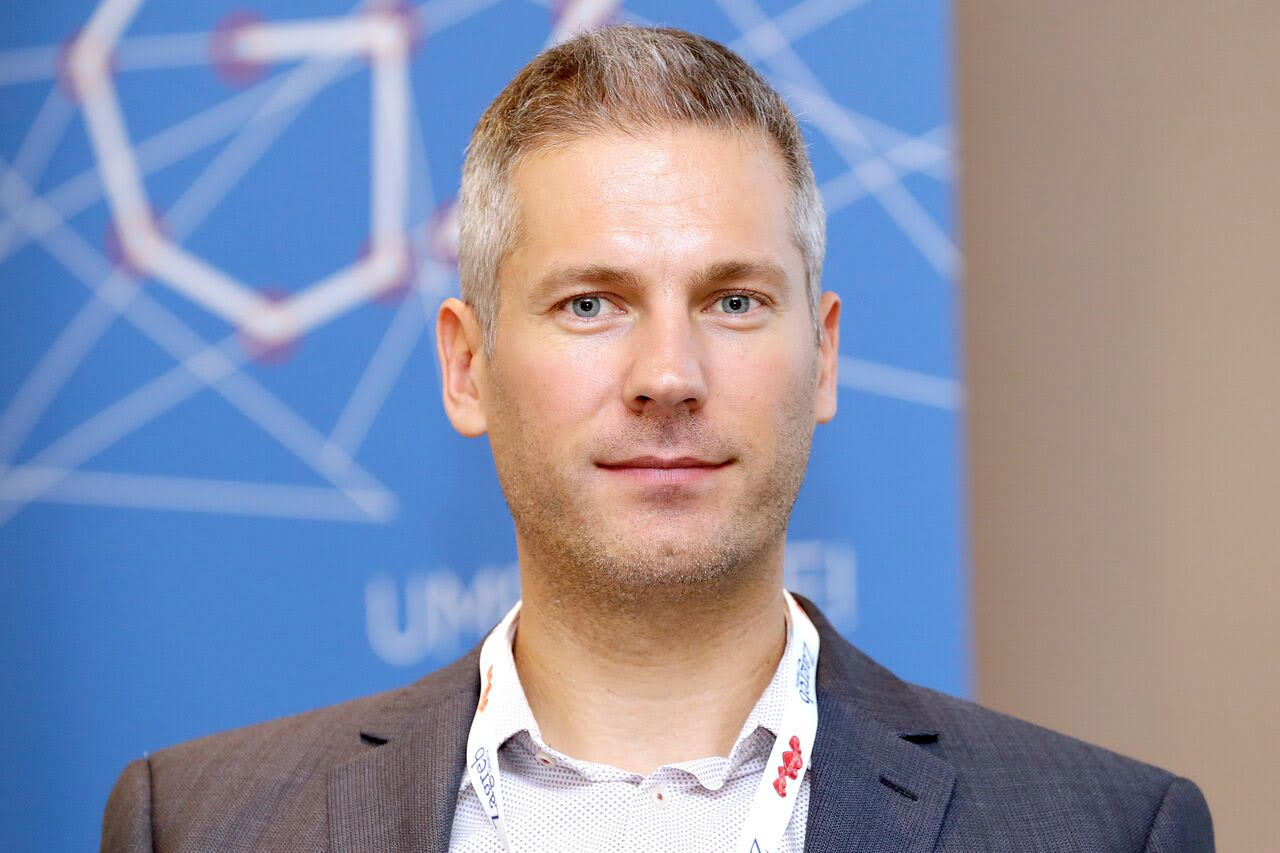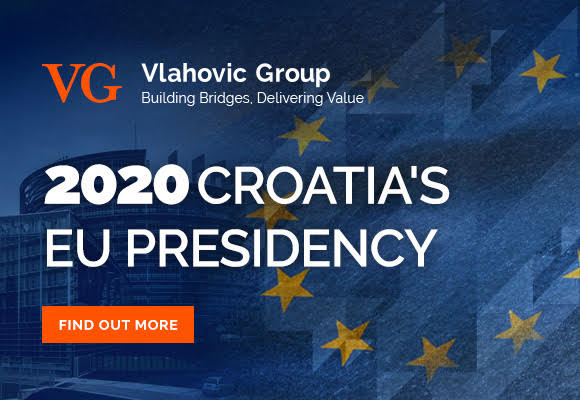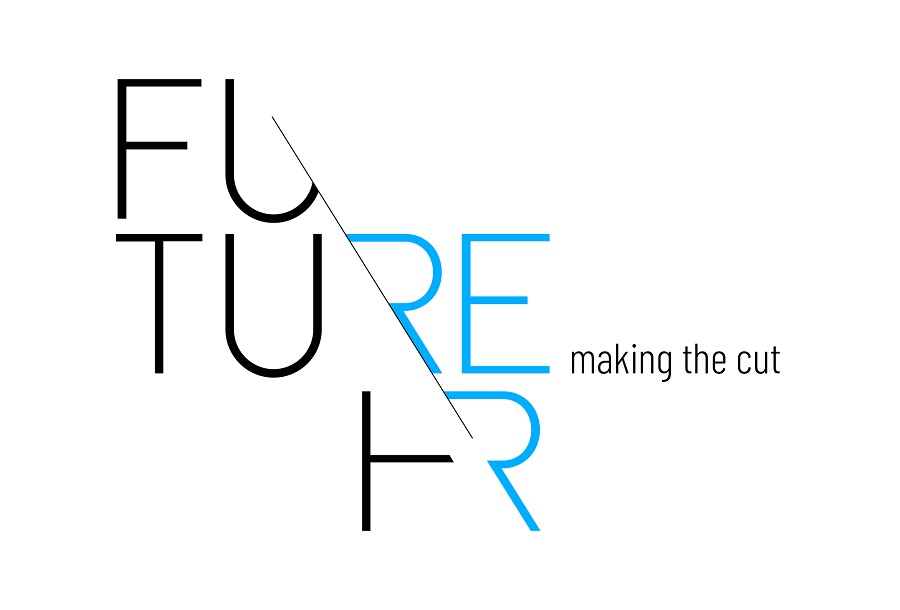August 11, 2019 - And why does 80% of the Croatian private sector have no expectations from the most important political mandate Croatia has taken on since entering the EU?
Croatia will assume the EU Presidency for the first half of 2020. We are delighted to welcome Aco Momcilovic to TCN who looks at some of the issues surrounding Croatia's preparations for this role in his first article for us. Aco is currently the President of MBA Croatia, the former head of HR for Rimac Automobili, who now runs his own HR firm, FutureHR. Welcome, Aco.
To answer this question above, we should firstly ask ourselves how familiar are we with the topic, and what kind of information is available or discussed in business circles. MBA Croatia did a survey to answer some of the basic questions connected to the upcoming Croatian Presidency of the Council of Europe. In general, professionals from only a few business associations are familiar with the Presidency – 75% of them state they know what it means. Still 25% don’t know what it means at all. An even higher number of people are aware that we will run the presidency in a few months – > 80%, although obviously some of them don’t understand what it is. Only 10% of responders are not even aware of that fact. So it seems that the Croatian Ministry of Foreign and European Affairs did a good job there.
What could be the contribution of the EU Presidency to Croatian businesses specifically?
Since general awareness is relatively high, it is a bit concerning that despite that fact, more than 80% of businesspeople are completely unaware of any goals that Croatia as a country or our business society might have, or different agendas that could be raised for our benefit. The fact that 76% of decision-makers in the country’s private sector don’t have any idea how the Presidency could impact our business, in the short term or long term, is saying something about our level of knowledge about this potentially very important topic. Business at the highest level is quite internationalized and often managed on the country levels, and connected legislations that are put forward, and Croatian entrepreneurs are obviously not participating in that process. A very important detail is to understand that it is not possible in theory to directly advance national interests but to steer them through managing and reaching consensuses on the different legislations that could be our priority – the Presidency sets the agenda in the Council and can speed up or delay dossiers according to the national interest. If you want to sell anything in the single market you necessarily have to engage with EU law; your employees' health and safety at work are protected by EU law; decisions on trade policy with third countries are made by the European Commission and might directly affect your business' competitiveness and ability to export. Is it up to the Ministry of Foreign Affairs or to somebody else to disseminate this information remains a question?

Do we have the right people to do it?
As a general rule, we don’t have confidence that our representatives and employees sent to this project (in Brussels or in Croatia) are competent enough to do that job successfully. Only 5% believe they have the required skills and proper education for the task. 15 % answer that they are not sure, and 80 % state that they think or at least assume that we are not prepared. This should concern the Croatian Government and Prime Minister Andrej Plenkovic since it may reflect on the perception of their competence.
That lack of trust is not a very comforting fact, considering that it seems that our government has spent 7 million Kn on the education of a few hundred people that will participate in EU Presidency from the Croatian side. Many experts claim that the amount was spent on basic information, and that it lacks the depth and finesse required to do diplomacy at the highest level. Of course, it is possible that some other, more complex education programs, will be organized in the remaining time by the Ministry of Foreign and European Affairs, in cooperation with other experts from the public affairs and government relations companies (companies like Vlahovic Group that is member of FIPRA or the newly established Seeport) or diplomatic circles. That problem is not Croatia specific – it is recognized that many new (and especially small) members have a lack of experienced people working in administrative EU positions.
Strategically speaking, a country can achieve some individual goals depending on its tactics, but for that we have a deficiency if not in diplomatic knowledge then in administrative and lobbying experience. Only after the presidency we will be able to recognize if the right targets were set (if any), and if they were achieved. For example, Bulgaria used their opportunity to organize 200 political and cultural events to promote their country. Estonia was successful in pushing the digital market topic and digitalization policies. On the other hand, Malta was skilled in reaching political consensus in previously unresolved areas. Romanian intentions are clearly stated by their Victor Negresku: "Romania's priority is to show professionalism in the exercise of the Presidency of the Council of Europe, but also to take advantage of this moment to improve its image and strengthen its position at the European level.” It would exceed all our expectations if Croatia would be remembered for achieving anything of that level of importance.
It seems that current hot topics are in the area of human rights, so the post-election focus will be in protecting and renewing European values which will enable current Trio (Romania, Finland and Croatia) to make significant changes. As expected many stakeholders will promote their “policy papers” to try to advance their agenda. For example, representatives of civil society are actively participating in the process and doing quite a good job. Is there a business agenda created to protect or promote Croatian companies or at least estimation how will potential policy changes in different sectors/legislations (low carbon emission, Brexit or Digital Single Market, EU Budget 21-27 for example,) influence their financial results? A few round tables will be organized by the Ministry of Foreign Affairs in the remaining months, so maybe they could contribute to that cause. Almost equally important is the question - what the Croatian Chamber of Commerce is doing (if anything) to make the most of this opportunity on behalf of Croatian businesses? Are any business summits or investment fairs being organized? If not, why not?
We can all hope that this “graduation exam” as some are describing it, will demonstrate our competence and allow our deeper engagement in the political process. If we lose this chance to promote our political priorities and innovations, the opportunity cost will be significant, alliance building and collaboration with other countries will have to wait for better times. If anything, we have proved that media exposure of our country, for example through sports (World Football Championship), will not bring us many advantages if we don’t have proper tools and knowledge to use it.

Responsibility also lies with our business associations since their members, according to the conducted survey, don’t have enough information and interests about opportunities placed in front of them. It was a bit surprising to see that the only company doing some marketing connected to the EU Presidency and potential projects is Vlahovic Group – a public affairs company.
The cost of this “project” is estimated to be around 70 million Euros, and it would be a shame not to get anything in return. So let’s hope that our government will do their best to prepare and educate their representatives, and also motivate them to achieve some clearly set goals. What business sector should care about is whether Croatia is planning to use the Presidency to deliver national objectives and goals, to raise its profile in the EU and international community and to promote the benefits of EU membership to the Croatian people? Or is its objective merely to get through the coming six months without anything going disastrously wrong? “
Fortunately, the results will be visible very soon, some of them already in the second part of 2020.



